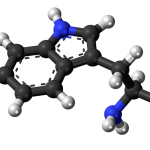Asian herb astragalus may help boost endurance during exercise. Astragalus is a medicinal herb used to boost immunity, reduce inflammation, and help with specific conditions such as diabetes. It has also been claimed to improve workout performance by: Boosting endurance capacity. Astragalus has been shown to extend time until exhaustion during exercise in … [Read more...]
L-Theanine for Fat Loss
Minimal research sheds light on L-theanine's potential to suppress weight gain. The amino acid L-theanine is one of the major bioactive ingredients in green tea. It has been suggested to potentially aid fat loss by: Regulating fat accumulation. Theanine has been shown to suppress weight gain and fat accumulation in animals. Overview Theanine is an amino acid found … [Read more...]
Salvia Root for Fat Loss
Chinese salvia root does not appear to support fat loss. The traditional Chinese herbal remedy salvia root, Salvia miltiorrhiza, is believed to have various health benefits. It has been suggested to aid weight loss by: Reducing food intake. Supplementation with salvia root was found to decrease food intake and subsequently lower body weight in animal … [Read more...]
Forskolin for Fat Loss
Plant compound forskolin may help burn fat and impede weight gain. Forskolin is a chemical compound drawn from the Coleus forskohlii plant and is believed to support fat loss by: Increasing lipolysis. By activating cAMP, forskolin may increase the breakdown of fat cells and decrease fat cell production. Increasing satiety. Forskolin seems to aid weight management by … [Read more...]
5-HTP for Fat Loss
Brain chemical 5-HTP may promote fat loss by reducing appetite. The chemical precursor to serotonin, 5-hydroxytryptophan (5-HTP) may facilitate fat loss by: Reducing appetite. 5-HTP may indirectly support weight loss by reducing appetite and subsequent food intake. Overview 5 Hydroxytryptophan (5-HTP) is a vital compound naturally produced in the body from the … [Read more...]




